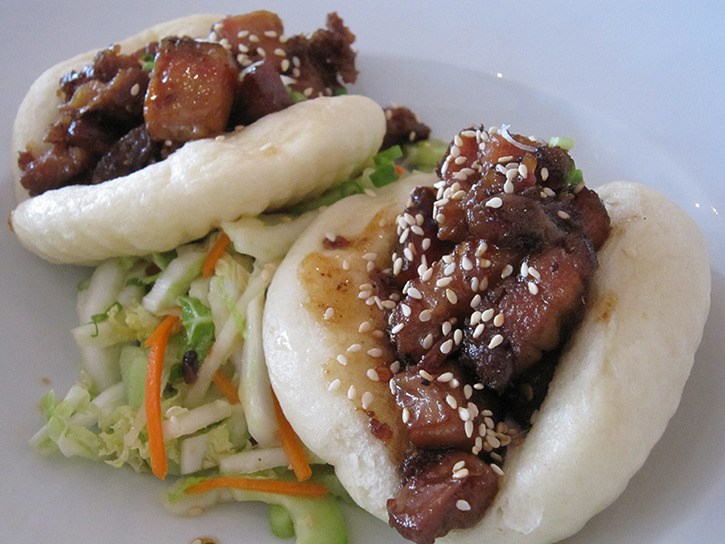People often argue about authenticity in food, especially if they have travelled or tried home-cooked versions of ethnic dishes. Were lucky to live in a multi-cultural city with many diverse dining options, but there is still an ongoing quest to find authentic food. But what really is authentic and can it be defined? And if it is not authentic but it tastes good, does it really matter?
Authenticity in general, let alone in food, is objective and the only way it can be measured is relative to the context in which it was made and what is available.
Everyone has their own interpretation. Definitions are created through experience and we only know what we have tried. People often hold what they grew up with as a golden standard for what is considered authentic, but even this is biased. Ingredients, techniques, recipes and traditions evolve with time and so do palates. Quite often, recipes are regional, or even unique to cities.
For example, Italian food in the North is richer and heavier than Italian food in the South, but who is to say one is more authentic than the other? Therefore when we dine Italian and receive pasta that is a bit more generously sauced, it risks being deemed non-authentic. Could it have been inspired by Northern Italian styles of pasta? Im not talking about restaurants making commercialized Italian food, but chefs and cooks who are actually trying to bring a true taste of Italy closer to home.
The other gold standard for authenticity is the one people bring back after travelling to the place where the dish originated. Just because one has tried sushi in Japan, or croissants in Paris, does not necessarily make him a connoisseur of the food, or mean what they tried was even authentic. Not every place in Paris is making excellent croissants and Paris isnt even where croissants started. Croissants technically trace back to Austria and their version of a croissant, the Kipferl; or should I say the Parisian version of the Kipferl is the croissant? Likewise, sushi was first Chinese, although the Japanese really adapted it and made it their own. Trying food from its so-called origins may give one a better idea of authenticity, but it really depends.
It is also slightly unreasonable to bring these standards of authenticity to an ethnic table outside of its origin. Once ethnic food is made outside of its natural context it is almost inauthentic by default. Ingredients and resources are limited and vary from place to place, so just like the eat local movement which is as local as possible, so is the goal for authenticity.
Ethnic food is often as authentic as possible given the available ingredients. Global ingredients can be hard to source and local ingredients just taste different so to replicate flavours of a different country is near impossible.
Quite often people might not even like or know what is authentic even if it hit them. Those cooking ethnic food usually have to tweak their recipes due to resources and having to adapt to tastes of other cultures. There is home-cooked food and restaurant food, and the former is often more appealing to a niche market. For the most part, Szechuan food outside of Szechuan is never as spicy, and the same goes for Thai, Jamaican and Indian. Even an uncut pizza with a soft soupy centre, which represents an authentic Neapolitan-style pizza, will get sent back to be cut and baked longer. Is there even a point in trying to deliver authenticity when the majority of diners might not even appreciate it or get it?
It might be naive to think chefs and cooks should keep working towards authenticity even if it is underappreciated, but it helps educate the market and pushes palates by trying to achieve it.
Arguing authenticity in food might be trivial, but to people who value traditions, culture and history, it matters. In the end it is about personal tastes and whether or not it is good, but authenticity should not be overlooked even if it is challenging to measure it.
Find Mijune at Diner en Blanc, Vancouvers largest everything-in-white outdoor dinner party on August 22. Araxis last Longtable Series for the summer is on August 17 at North Arm Farm in Pemberton, and A German Riesling Tour at Bestie, Home of Chinatowns Finest Currywurst, is on August 18. Tickets are $40 and include eight wines paired with half-dozen Bestie sausages. Find out more about Mijune at FollowMeFoodie.com or follow her on Twitter @followmefoodie.



